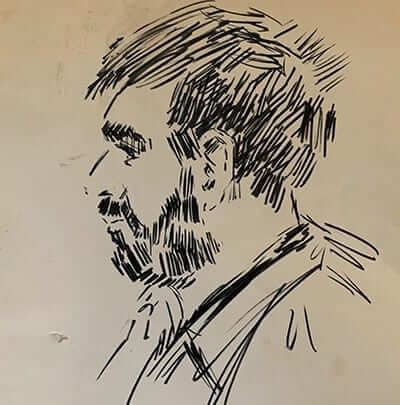As symbolic as Superman’s S, as sleek as Nike’s Swoosh, the Jumpman logo is the silhouette of a man in midair. Like his likeness alone, like the image of a basketball player dancing in the sky, like the grand jeté of a long horizontal jump, Michael Jordan transcends sports and commerce. Like the original logo on the Air Jordan I, of a basketball with wings, Jordan is the aerial heir to the Wright brothers of his native North Carolina. The star of “The Last Dance,” Jordan has the right stuff.
A Netflix documentary about Jordan’s final season with the Chicago Bulls, “The Last Dance” should be mandatory viewing for politicians who lack Jordan’s personal finesse and professional discipline. Across ten episodes and three decades, Jordan proves he is as good a politician as any Chicagoan from the suburbs of Hawaii; better than Barack Obama, who delivers color commentary (of a sort) in the series; better, too, than the most overt politician among players, an Isiah (again, of a sort) with a passel of doubting Thomases; better than critics who feign neutrality and print lies.
Unlike most politicians, Jordan refuses to opine on that which he does not know. Whether he is too shrewd to be impolitic or too politic to be partisan, he speaks a self-evident truth: “Republicans buy sneakers too.”
Those four words, said in response to queries about Harvey Gantt’s 1990 Senate campaign against Jesse Helms, elicit Obama’s “honest” appraisal of Jordan’s failure to “push harder” on civil rights law and public life. Then, in a rhetorical act of transference, Obama uses Jordan to ventriloquize about himself, saying: “How am I managing this image that has been created around me, and how do I live up to it?”
Jordan manages himself well, doling out Bulls tickets like a boss, shaking hands like a pol, posing for pictures like the celebrity he is. He exercises power like a natural, much to the frustration of the press.
Jordan’s power to leave the basketball court is reason enough for the press to attack him in the court of public opinion. The attacks constitute not only a full-court press of innuendo, but the triumph of deadlines over decency; of indecency toward the murder of Jordan’s father, James.
Because Michael Jordan is competitive, because he likes to win whatever competition he enters, because he is also a competitive gambler, the press asserts that his losses on the court must be the result of his losses off the court, according to the press. How else to explain Jordan’s measly 36 points in game two of the 1993 Eastern Conference finals against the New York Knicks, which the Bulls lost 91-96, except to say Jordan was up late—with his father—playing blackjack in Atlantic City? Never mind that the Bulls won the series, and that Jordan was named NBA Finals MVP for the third straight year.
Then, in a leap so absurd that only journalists could have believed it, the press more than hinted that James Jordan’s death was payback for Michael’s gambling debts. More ironic is the fact that the New York Times did actual reportage on the murder, in contrast to the paper’s current status as a reputable publisher of crossword puzzles.
“The Last Dance” may not be the last word about Michael Jordan, but it is the best work about his greatness.

